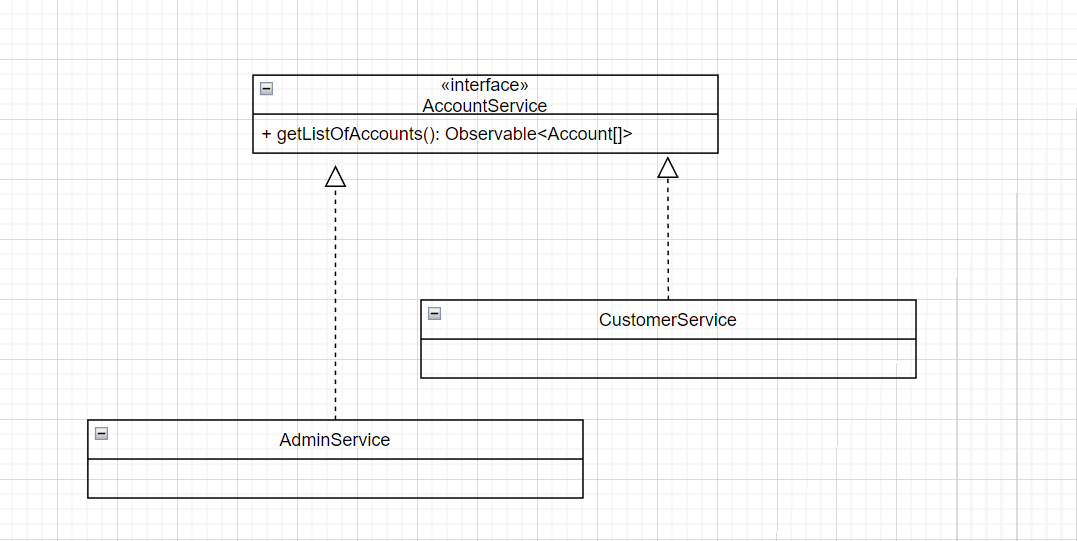
The idea: I would like to have ability to write code like I do this in Java ;). I would like to have ability to create a code with abstract service and provide different implementation for different components.
demo application: https://gitverse.ru/full-stack.blog/demo-angular-multiple-service-implementation
Why I can’t just write a code?
Because it is not possible to have simple implementation of this due to interfaces in javascript is not available in runtime. It can be achieved with additional identifiers for interface and services and support from framework or platform.
How I can implement it with Angular?
We have DI in Angular and it provides for as the chance to configure DI provider to inject required service for our components or other services.
Entities here to use with with our abstract code
export interface Account {
id: string
name: string
}
export interface AdminAccount extends Account {
}
export interface CustomerAccount extends Account {
}
First step: create interface and implements as a services
export interface AccountService {
getListOfAccounts(): Observable<Account[]>
}
@Injectable()
export class CustomerService implements AccountService {
constructor() { }
getListOfAccounts(): Observable<CustomerAccount[]> {
return ...
}
@Injectable()
export class AdminService implements AccountService {
constructor() { }
getListOfAccounts(): Observable<AdminAccount[]> {
return ...
}
Second step: in shared code we can use only interface without specific implementation.
For example, we can inject service by interface and get account stream from it
AccountListViewComponent
@Component({
...
})
export class AccountListViewComponent implements OnInit {
accounts$: Observable<Account[]> | null = null
constructor(@Inject("accountService") private accountService: AccountService) { }
ngOnInit(): void {
this.accounts$ = this.accountService.getListOfAccounts()
}
}
but we need to use service injection with annotasion to specify service qualifier name
@Inject("accountService") private accountService: AccountService
Third step: In our last step we just need to provide right service
in module level, we can provide service for the module
@NgModule({
...
imports: [
CommonModule,
AccountModule
],
providers: [
{ provide: 'accountService', useClass: AdminService }
]
})
export class AdminModule { }
or we can provide service implementation in component level
@Component({
...
providers: [
{ provide: 'accountService', useClass: CustomerService }
]
})
export class CustomerListViewComponent implements OnInit {
...
Conclusion
I like this ability. It interrupts me less when I need to switch between UI and Backend projects.
